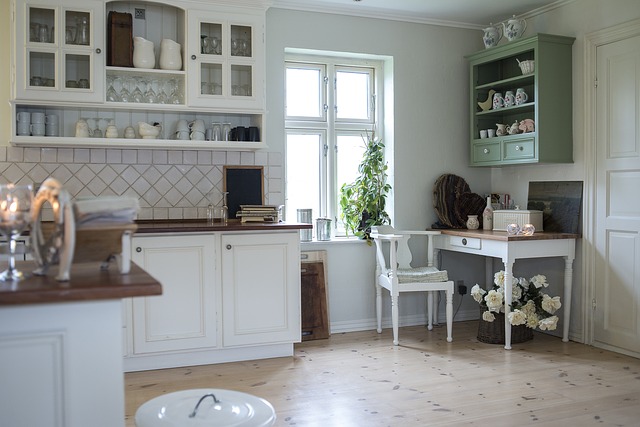
Photo by RODNAE Productions from Pexels
As a mom, you have a difficult job. You are constantly on the go and don’t get enough sleep, your stress levels can be through the roof!
But there are some self-care tips for moms that will help you to relax and recharge so that you can continue to take care of yourself and others. In this blog post, we will discuss simple self-care tips for moms!
Take Time to Appreciate Life’s Pleasures
Breathe deeply every morning before getting out of bed. This helps to calm you down and helps release the stress from your body.
Doing something relaxing is essential for being healthy. Try getting a sauna. For instance, Finlandia’s outdoor saunas are incredible, and it’s something you might want to try.
Keep Your Confidence High
Confidence is a vital trait for anyone to have, especially as a busy mom. Confidence comes from being able to trust yourself and your decisions. A lot of moms struggle with confidence because they second guess themselves all the time or worry that they aren’t making the right choices for their family. But when you are confident, you know what you want and make a choice about it without thinking twice about it. You don’t second guess yourself all the time or wonder if there is something better out there – you make a decision and go with it! An important part of fine tuning your confidence goes along with your own reflection of yourself. So if you have insecurities about your teeth, or hair, or even weight. Address these things head on with getting those invisible aligners, or hair extensions, or start exercising and managing your diet. Everything you do is in your hands, it solely depends on how you manage and resolve it.
Eat Well and Exercise
Take care of your body by eating well and exercising. This will help you to feel better and be more productive, as well as keeping you in shape so that you can continue to care for those around you with ease.
Focus on What Makes You Happy
Write down at least three things a day that makes you happy or proud of yourself! This could be things like “Today I made my son’s favorite soup, and he loved it!” or “I managed to get all of the laundry done in one day!”. This can help you feel better about yourself. Besides that, do something for yourself. Maybe go shopping or order a fancy handbag from somewhere like gorjuslondon as a gift to yourself. Besides shopping, you can take up new hobbies or do something that can keep your mind relaxed.
Remember why you are doing what you’re doing! Reminding yourself that parenting is a long journey full of its ups and downs can help you to be less frustrated about the day-to-day struggles.
Keep Your Sense of Humor
Keep your sense of humor! Laughing is a great way to feel better, so find things that make you laugh. It could be funny movies, stand-up comedy specials on Netflix, or even something as simple as laughing at yourself.
Reading jokes out loud can be a great way for moms to recharge after being on the go all day.
The bottom line is that you need to take care of yourself so that you can take care of others.
Track Your Self-Care
Keep up with self-care tasks in a daily, weekly, or monthly journal so that you can see what is working for you and keep track of how those things make you feel. When you keep track of what you are doing it becomes easier to include or remove things that are not fulfilling you. Take care of your wants and needs – if you want to get Laser hair removal done and remove the unwanted body hair that has been deteriorating your spirit, do it! Along with your child’s your needs should be your priority.
Take a Time Out
Spend time with a friend. Whether it’s your BFF or someone you just met, make plans to see them in person and let go of the pressure of having to find something interesting to say for once!
Take 15 minutes away from family responsibilities and do something that makes you happy – like reading on your front porch, spending time with your favorite pet, or having a sauna session with the help of a portable sauna (find more info by checking out brands like Relax sauna).
Get a Health Check
Don’t forget to take care of your health. Get a physical, get flu shots and do everything you can to stay healthy for yourself and for the family that needs you so much!
Avoid perfectionism. It will only lead to depression or anger when things don’t go as planned (and they won’t always go as planned!)
Makeup and Hair
Dress up for yourself from head to toe. You can put on makeup if it’s been a while since you’ve done so. It will make you feel better about yourself and put some pep in your step! Self-care encourages you to maintain a healthy relationship with yourself so Paris Lash Academy is what you need and make some time to pamper yourself.
Get some highlight in your hair. Ask your stylist about getting highlights or lowlights. You can even try dying your hair in a completely different color. It will help you feel good about yourself.
Make Yourself One of Your Priorities
It is often said that you can’t pour from an empty cup. This is something that most moms need to remember. Being a mom is difficult and with so much that needs to be done for your kids, there will be little left-back for you.
If you don’t take the time to take care of yourself you will burn out very quickly and you may even jeopardize your health. It is best to slow down now and again and take inventory of your life to see what is working for you and what is not so that you can make the necessary adjustments.



